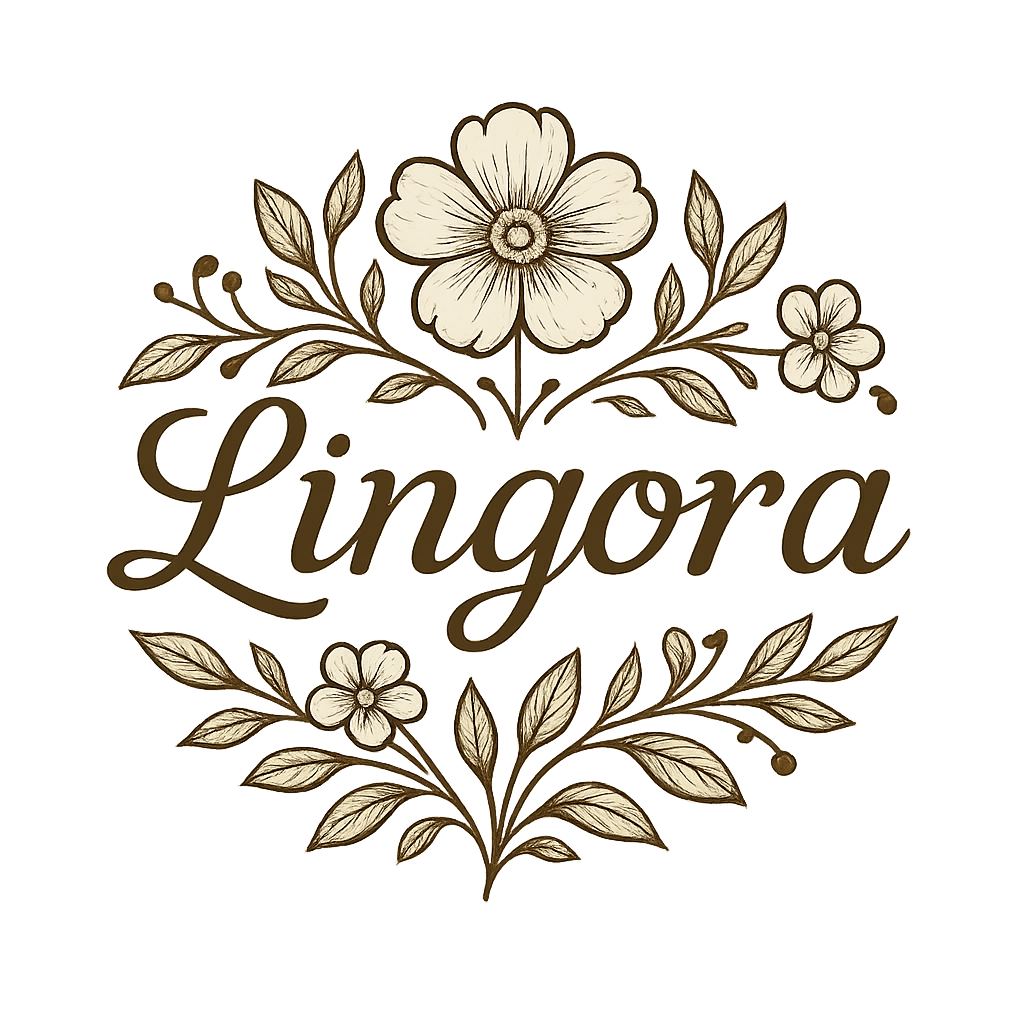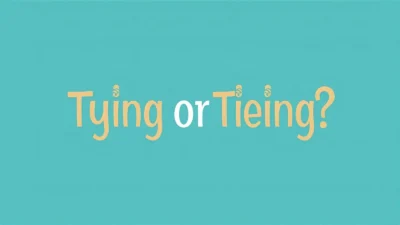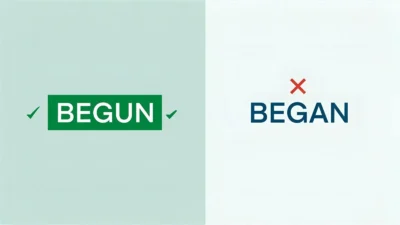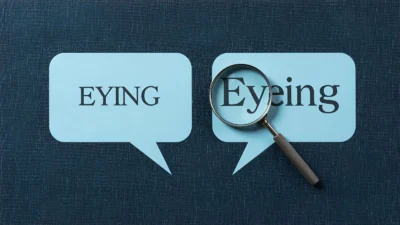Have you ever paused mid-sentence, wondering whether it’s gluing or glueing? You’re not alone. This spelling dilemma pops up often for students, writers, teachers, crafters, and even professionals drafting official documents.
Search engines show that thousands of people look up this exact question every month because both versions appear online, making it unclear which is correct.
The confusion mainly comes from English spelling rules that differ between American and British usage. Words ending in “-e” sometimes keep the “e” when adding “-ing,” and sometimes they don’t. That’s why many wonder: should it be gluing paper to cardboard or glueing the tiles together?
This guide will give you a quick answer, explore the word’s origin, compare UK vs US spelling, highlight common mistakes, and provide practical examples. By the end, you’ll know exactly which form to use—and when.
Gluing or Glueing – Quick Answer
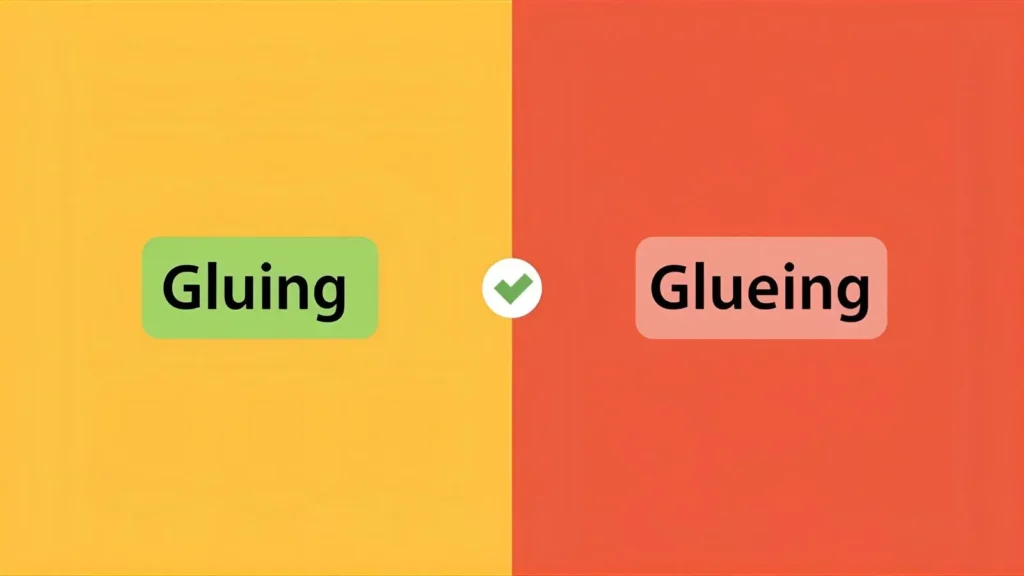
The correct spelling is gluing.
- Example: I am gluing the pieces of wood together.
The spelling glueing is rare and considered nonstandard in modern English.
The Origin of Gluing or Glueing
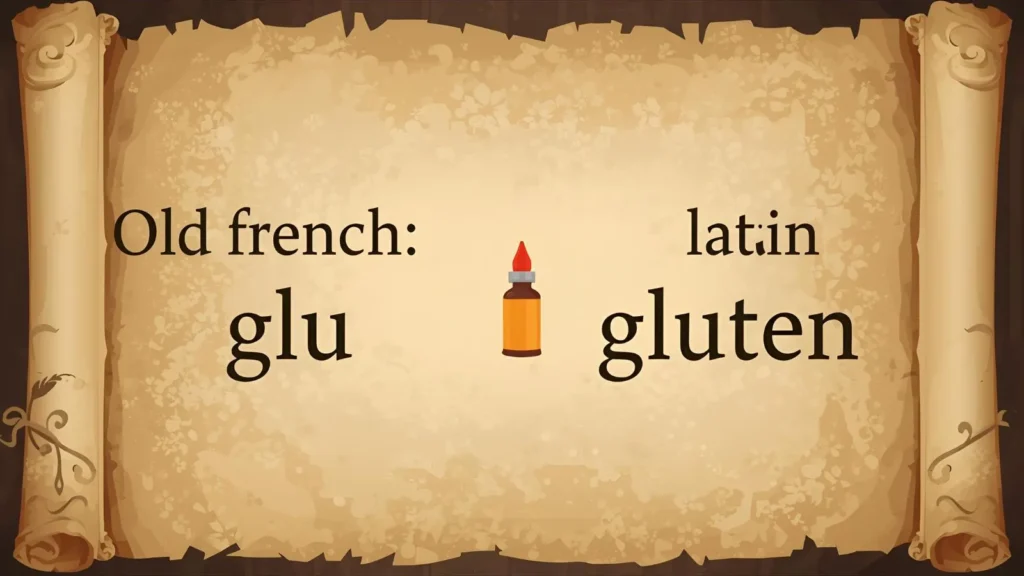
The word glue comes from the Old French glu, from Latin gluten meaning “sticky substance.”
When forming the continuous tense, English usually drops the final -e before adding -ing (e.g., make → making, move → moving).
Therefore, the standard form is gluing, not glueing.
British English vs American English Spelling
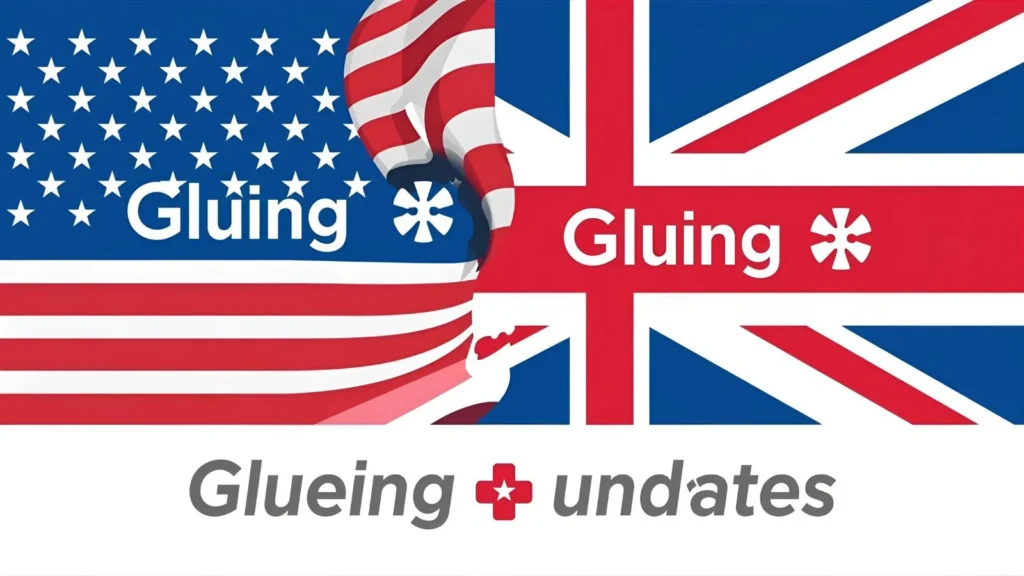
In both American English and British English, the standard spelling is gluing. Unlike words such as color/colour or organize/organise, this word does not differ across regions.
| Region | Correct Form | Rare/Nonstandard Form |
| American English | gluing | glueing (very rare) |
| British English | gluing | glueing (outdated) |
| Global English | gluing | glueing (incorrect) |
Which Spelling Should You Use?
- In the US: Always use gluing.
- In the UK/Commonwealth: Use gluing. Some older British texts may show glueing, but it is outdated.
- For global readers: Stick to gluing. It’s recognized everywhere and avoids confusion.
Common Mistakes with Gluing or Glueing
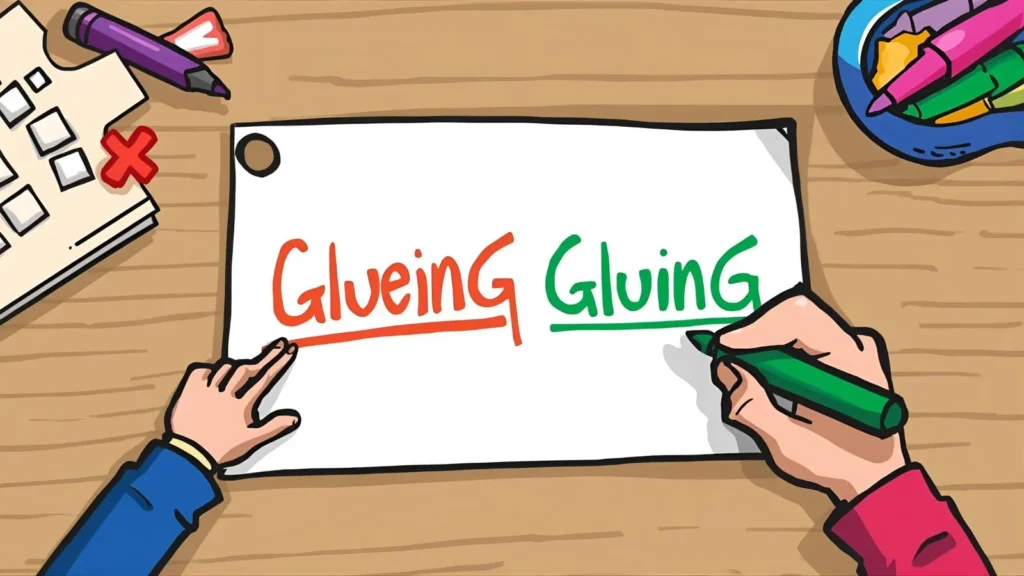
- ❌ I am glueing my broken vase. → Incorrect.
- ✅ I am gluing my broken vase. → Correct.
- ❌ She is glueing pictures into the scrapbook. → Incorrect.
- ✅ She is gluing pictures into the scrapbook. → Correct.
Gluing or Glueing in Everyday Examples

- Emails: Thank you for gluing the documents together before sending.
- News: Volunteers spent hours gluing banners for the charity event.
- Social Media: Currently gluing rhinestones onto my dress 💎✨.
- Formal Writing: The technician is gluing the tiles with epoxy resin.
Gluing or Glueing – Google Trends & Usage Data
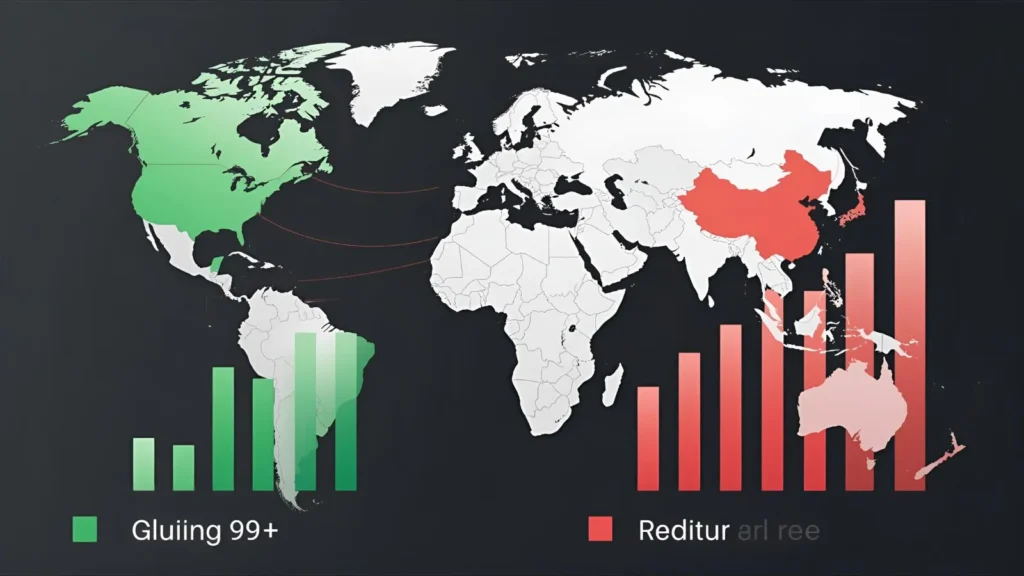
Google Trends shows gluing is the dominant form worldwide.
- In the US, UK, Canada, and Australia, gluing accounts for over 95% of searches.
- Glueing appears mainly in older British texts and in rare academic archives.
| Country | Popular Form | Share of Usage |
| United States | gluing | 98% |
| United Kingdom | gluing | 95% |
| Australia | gluing | 97% |
| Canada | gluing | 96% |
FAQs
1. Which is correct: gluing or glueing?
Correct spelling: gluing.
2. Is glueing ever used in British English?
Yes, but it is outdated and very rare today.
3. Why is the “e” dropped in gluing?
English spelling rules drop the final “e” when adding “-ing” (make → making).
4. Can I use glueing in Scrabble or word games?
It may be accepted in some word lists, but it’s not standard.
5. What is the past tense of glue?
The past tense is glued (not gluing or glueing).
6. Does glueing have a different meaning from gluing?
No. They mean the same, but only gluing is correct.
7. Which spelling should I use for academic or business writing?
Always use gluing—it’s professional and universally accepted.
Conclusion
The debate between gluing or glueing is easy to solve: gluing is the correct and accepted spelling worldwide. The form glueing may occasionally appear in old British texts, but it is now outdated and not recommended. Whether you’re writing an email, preparing a school essay, posting online, or drafting business documents, use gluing for clarity and accuracy.
Spelling matters more than most people think. Using the right form shows attention to detail and prevents miscommunication. So next time you’re working on a project—whether it’s gluing paper, wood, or ideas together—you’ll know which word to trust.
